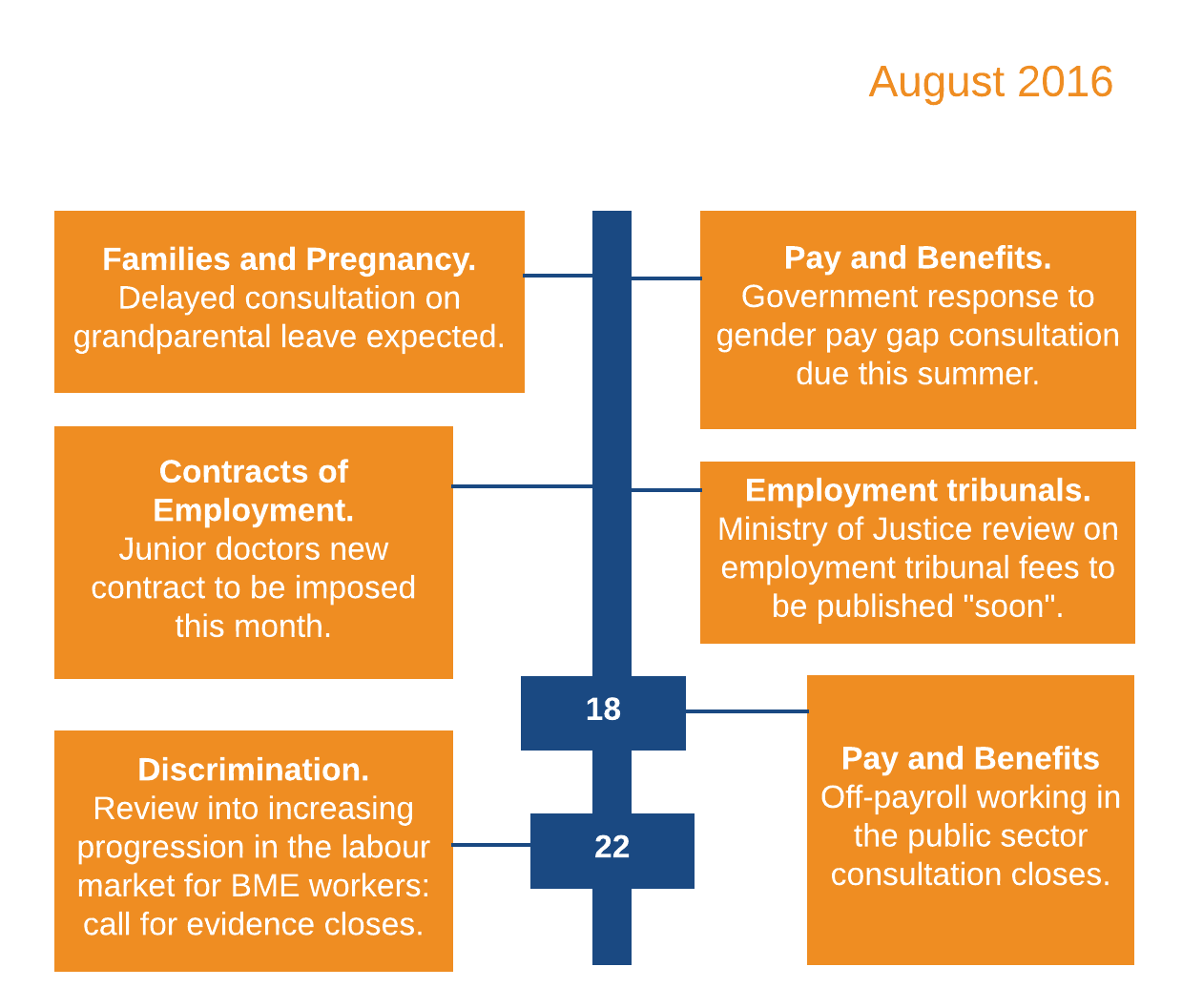With the legal world reeling and British politics in turmoil following last month’s surprise Brexit decision, it was business as usual in the courts and tribunals, with little respite from the deluge of new judgments in the run up to the summer recess.
In the ECJ, Advocate General Sharpston opined that an employee’s dismissal for wearing an Islamic headscarf at work was directly discriminatory on grounds of religion or belief. This was in stark contrast to the recent opinion in Achbita, reported last month. These differing opinions have been analysed in our blog (see below). The ECJ has also reaffirmed its earlier decision in Pereda and found that a worker who is prevented from taking their scheduled annual leave due to sickness can carry it forward to the next holiday year.
The Court of Appeal upheld the EAT’s decision that part-time property judges were treated less favourably than their full-time tax judge comparators under the Part-Time Workers Regulations 2000. In A v B and another, the Court of Appeal upheld a decision that a headteacher who had failed to disclose her relationship with a sex offender had been fairly dismissed.
The EAT held that an employee was automatically unfairly dismissed for making protected disclosures even though the person who dismissed her was unaware of those disclosures and considered a number of points concerning the assessment of compensation for sex discrimination including whether the 10% Simmons v Castle uplift should apply to injury to feelings. It also clarified the section 43K Employment Rights Act 1996 definition of worker for agency workers bringing whistleblowing claims.
The government published its response to the Women and Equalities Committee report on transgender equality, stating that it intends to review the Gender Recognition Act 2004 to see whether improvements can be made to streamline and de-medicalise the gender recognition process. The government also published its response to the House of Lords Select Committee report on disability discrimination, rejecting most of the recommendations. Its only commitment was to evaluate the possibility of introducing a right for carers to request flexible working by April 2019. The government also updated its policy paper on national minimum wage enforcement.
In the news, Dominic Raab MP said that the review of ET fees will be published “soon”, Jeremy Hunt MP announced that the new contract for junior doctors will be imposed in August, the Mayor of London published City Hall’s first gender pay audit, HMRC began investigating the payment of retail staff at Sports Direct and BIS published its report on Sport Direct’s employment practices, the Central London employment tribunal heard a case on the employment status of Uber drivers, Deliveroo workers’ contracts ban access to employment tribunals and the government made a statement on the status of EU nationals in the UK.
Meanwhile the consultation on grandparental leave has failed to materialise once again. We understand from BIS (now BEIS, the Department for Business, Energy and Industrial Strategy) that it is still on the table. However, as someone has suggested to us, it may now be a very long table.
Blog
In our blog, Dan Myers and Claire Templeton looked at the potential employment law implications of some umbrella company arrangements, Edward Kemp explored the protection available to vulnerable migrant workers and Alex Mizzi analysed the differing Advocate General’s opinions on religious dress in the workplace in Achbita and Bougnaoui.
Next month
Key developments to look out for in August 2016:

For recent and forthcoming developments, don’t forget What to expect in employment law, Case tracker and Legislation tracker.



